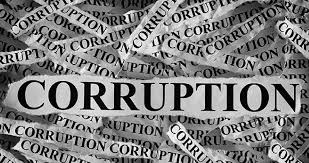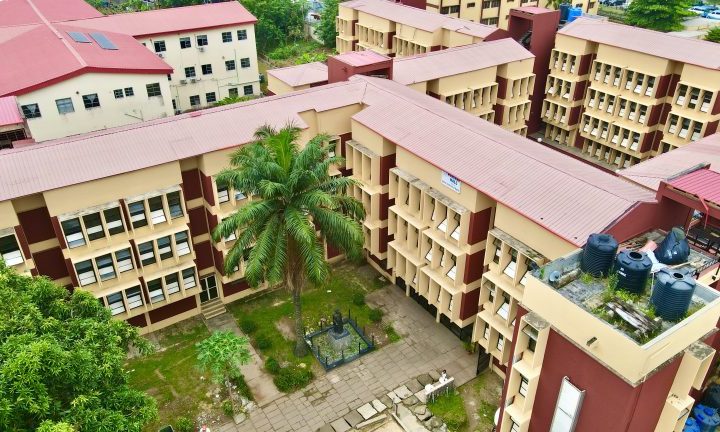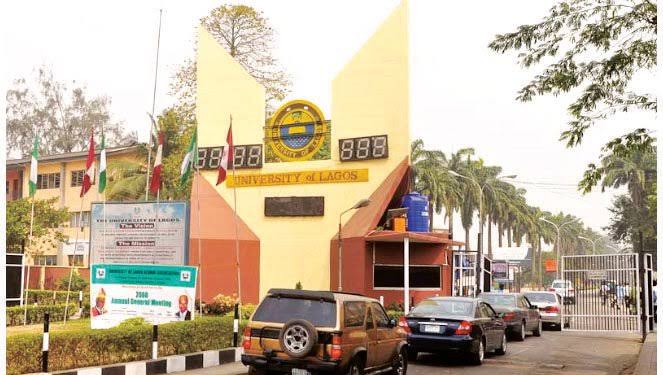
By Makinde Emmanuel

The issue of corruption in Nigeria has become endemic in our socio-economic milieu. This menace has eaten so deeply into the fabric of our society that an average Nigerian views corrupt activities as one that is part and parcel of his culture. However, the lingering question is, who is to be blamed for this? Are Nigerians the architects of these activities? Does my moral wrong colliding with yours put our society in this state of decadence? Anyways, there is one thing to be certain of, Nigerian society is sitting on a ticking time bomb that will soon explode if it continues in this direction… MakindeWrites.
The question of whether corruption in Nigeria is a systemic issue or a result of individual moral failure has been a conundrum I have ingrained myself in over the years. But what is more pleasant than finding light at the end of a tunnel after years of searching for that light? The answers to my questions got me right in my reflection process, now, I have nothing to do but share with you that light.
The definition of corruption has been a centre of discussion among various scholars who find interest in giving this phenomenon a ‘formal- –classical’ definition, with all defining it as it deems fit for them. However, the most accepted meaning of corruption is defined according to Transparency International as, “the abuse of entrusted power for private gain.” Obafemi Awolowo also defined it as the “abuse, misuse and disuse of power”. Corruption involves any illegal activity such as bribery, theft, embezzlement, fraud, and many more.
With the definition of corruption, it is obvious that corruption is barely possible if one does not have power or belong to a position of authority or has someone who has someone in a position of authority. This postulation might be wrong, but Chinua Achebe agrees with this school of thought when he asserted that “the problem of Nigeria is simply and squarely the problem of leadership”. Suffice it to say, the contemporary position of Nigerian society is a result of corruption from people with power- our leaders.
The impact of corruption in Nigeria has become analogous to a parasitic relationship between prey and its host; corruption is like a virus planted into the socio-political system of our country. This phenomenon has affected you and me on every level, neglecting those who put us in this critical state. The global perception towards Nigerians is becoming day-by-day negative thereby affecting our global image.
The Corruption Perceptions Index released in 2022 by Transparency International, reported that Nigeria is the 150th least corrupt nation out of 180 countries. This report shows how much Nigeria has fared in her voyage of corruption, sponsored by the leaders.
Our political system has now become a thing less of democracy, and more of ‘Kleptocracy’. The decadence is beyond syphoning of money discreetly but a situation of brazen avarice for public funds. Take for instance, the viral footage of a Governor caught on camera receiving a bribe, this same person is the current national chairman of the All Progressive Congress (APC). This act is enough to show to us that our rulers are indifferent in serving as a positive mirror to their populace. The question now is, how can we expect a country where politicians’ actions resemble those of armed robbers to thrive?
The lack of transparency and accountability across various sectors is a matter of great concern. There is no effective form of sanction or discipline for individuals and public officers who disobey the law, the system is built on godfatherism and compensation in place of sanction when the law is broken. Public office holders are conferred immunity which has gradually become a lifetime insurance, they go away with their crimes even after office. The police force that ought to be the upholders of peace is nothing but a tool in the hands of the political elites. A video was circulated during the 2023 elections where policemen were standing idly while a political thug was threatening the life of voters to vote for a political party that is not of their choice in Lagos State. We tend to overlook all of these as minor issues, forgetting that a country that has corruption built together with its foundation is nothing far from Dystopia.
The bad thing about all of these is that corruption is now a norm for every Nigerian. The system has enabled corruption across all levels and it is now a competition of who has the highest power to go away with crimes. You hear sayings like “the bigger the crime, the easier to escape”. The not-so-funny thing is that these social issues are impacting the younger generation thereby making it difficult for us to burn that fabric corruption has shattered, it has rendered our efforts useless. Why? Because it is a problem from the root. You can’t blame a child who calls the likes of Hushpuppi, Naira Marley, and other society-disruptive personalities as his/her role models because society is what shapes a child and that child is a product of Nigerian society. Good deeds are hardly rewarded and evil is what is praised by the populace and the political system itself.
Without shifting all the blame to our leaders, let’s not forget that the political, social, and legal system of our country is still operated by humans, not by machines or robots, the people of Nigeria are still the same people making up our system but these individuals are only a conglomerate of avaricious, selfish, and inhumane figures who are more focused on the voyage of self and family enrichment at the detriment of over 200 million people. They are the set of individuals who would rather propose bills to buy luxurious cars, build more houses that will be occupied by insects and specks of dust, and allowances to compensate themselves while their hands become suddenly heavy to sign a bill to increase the minimum wage of workers, to build more health facilities for dying children, to build houses for those who have no choice but sleep in the slum of Makoko, to provide more jobs for the unemployed youths vanishing under the influence of substance abuse because they have no hope in making a living.
We all find it easy to push the criticism on the government alone, but this is a question for us all. In what way are you working toward making the country a better place for us? Are you that individual who is given a little position but cannot help but abuse it? Are you that lecturer who would rather collect bribes for grades than encourage the students to study? Are you that young person who would rather think of illegal ways to make money than be innovative in a positive way? That position you and I occupy and abuse is what makes up a system because a tree cannot make a forest. We, just like our government, are indirectly or directly part of the system.
In our self-reflection, we should all ponder on how we are nothing less like those who put us in these independent chains and shackles.
I leave us with the words of Thomas Jefferson, “Who will govern the governors? There is only one force in the nation that can be depended upon to keep the government pure and governors honest, and it is the people themselves. They alone, if well informed, are capable of preventing the corruption of power, and of restoring the nation to its rightful course if it should go astray. They alone are the safest depository of the ultimate powers of government.”





More Stories
Mass Comm First Class Graduates: How Single Steps led to Triumph
Smart money moves: Exploring Side Hustles For Students Seeking Passive Income
The ABC of being NYSC Ready